Stranded In Paradise: How I Have Made A Life In Tonga
When I first arrived in Tonga, or first got stranded in paradise, with my weekend backpack and mind full of coronavirus-related anxiety, I stayed in a hostel. I had booked the place for a couple of nights before I was due to fly back to Fiji.
My plane landed, and Fiji declared its first cases of COVID-19. I arrived at the hostel, and the staff greeted me with;
“You arrived in Tonga today? Where did you arrive from?”
I told them I’d just arrived from Fiji. And they told me I couldn’t stay there. After a bit of explaining, they agreed to let me stay in the only dorm room that was occupied by someone else who had recently arrived from Fiji.
The next day, there was talk of lockdown in Tonga and the hotels and hostels started to close.
“Don’t worry, as long as we have people, we’ll stay open.” The hostel staff assured me – but I wasn’t sure, especially after their strictness at the beginning, and the fact that there was only me and one other foreigner there at the time.
RELATED: I Have Visited North Korea Almost 30 Times, Why I Continue To Go Back
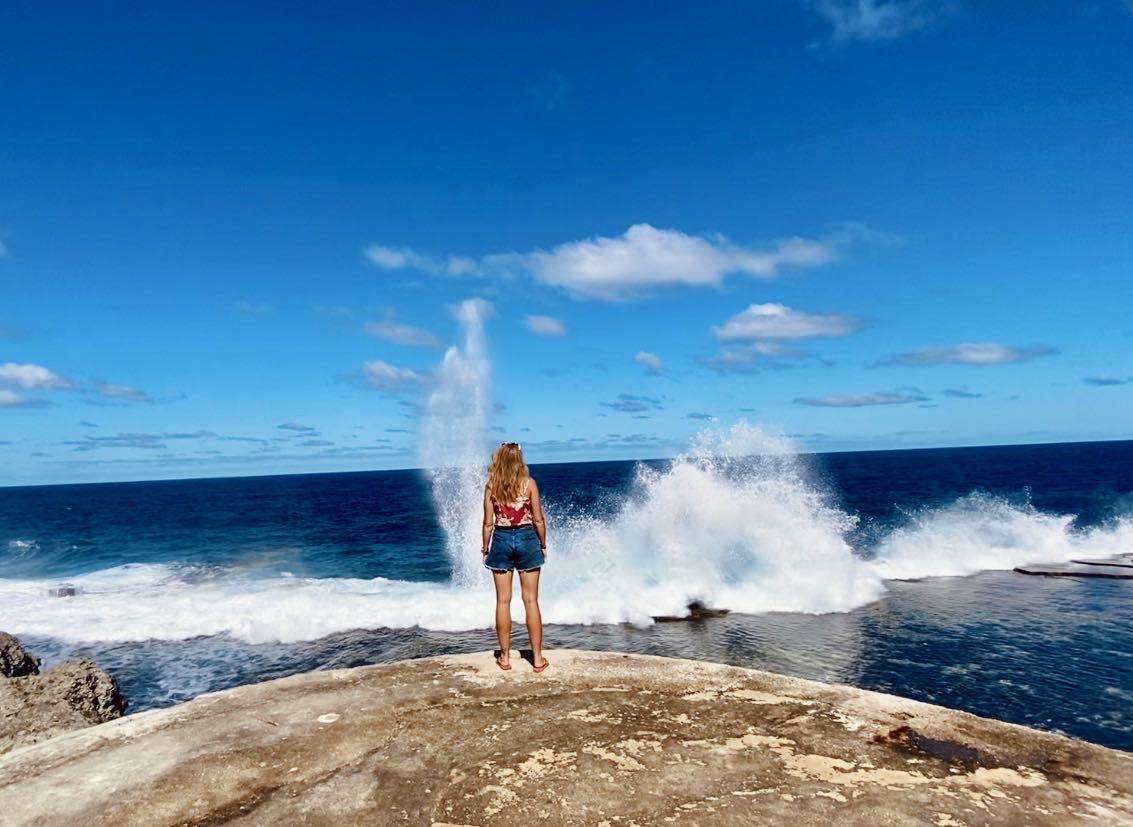
Finding a Place to Live in Tonga
After the last international commercial flight departed Tonga and I was unable to board, it was clear I couldn’t leave and that I’d be stuck here for a while. Until lockdown ends, at least.
The hostel was located right in the centre of the capital city. But don’t get ahead of yourself envisioning a bustling hostel right in the middle of bars, shops, and restaurants. Nuku’alofa has a few restaurants and just a couple of bars and cafes. And these all closed just on time for my arrival. Being in a city can be claustrophobic, but being in an empty city with no people and noting open is both isolating and claustrophobic at the same time.
So I went looking for a new place.
The first day, I hired a car and drove around the island. I’d met a foreigner who works here and asked him about long term rentals here. He informed me that the one retailer in Tonga never answers his phone, and the real estate market is pretty dead. So I started to drive around looking for something, anything…
After a couple of hours and a drive around pretty much the entire island, it was clear that potentially renting a house would not be possible. However, I did drive to the west side of the island with Tonga’s best beach and there were a couple of resorts there. 2 out of the 3 resorts there were void of people already, but one of them was willing to negotiate a long-term rental price for a fale (Tongan word for house) they had free. There were 2 other foreigners there. The resort, Australian owned, asked only that I go to the doctor’s to get a medical check and that we all on the resort adhere by social distancing rules for 2 weeks.
We agreed, and I moved in the next day. I packed my bags – or actually just bag, since I’d only packed to be here for the weekend. Little did I know my packing skills were going to have to last me 6 months plus…
A Place to Call Home in Lockdown
Lockdown at the beach offers much more freedom than anywhere else, and the next 2 weeks were spent mainly working remotely from my laptop, and filling the rest of the time with swimming and snorkelling. My normal job is in tourism, so already we had been cut down to just a couple of days a week.
A perfect 2 and a half weeks passed until Cyclone Harold paid a visit and flooded the resort and my fale – taking with it my bag and purse. (Luckily I still had my passport, though.)
There were 5 of us in total who became homeless overnight, right in the strict lockdown of Tonga. This morning is a blur of rooting through the rubble, bucketing out sand and trying not to stand on fish. In the afternoon, a couple came up to the resort. It turns out they were looking out for their friend’s house who is currently stuck out of Tonga, and they very kindly offered us all a place to stay at their friend’s place since it, and the 4 dogs, needed a house-sitter.
And there I am still today, months later and nowhere nearer to getting home. Only, all of the others have left.
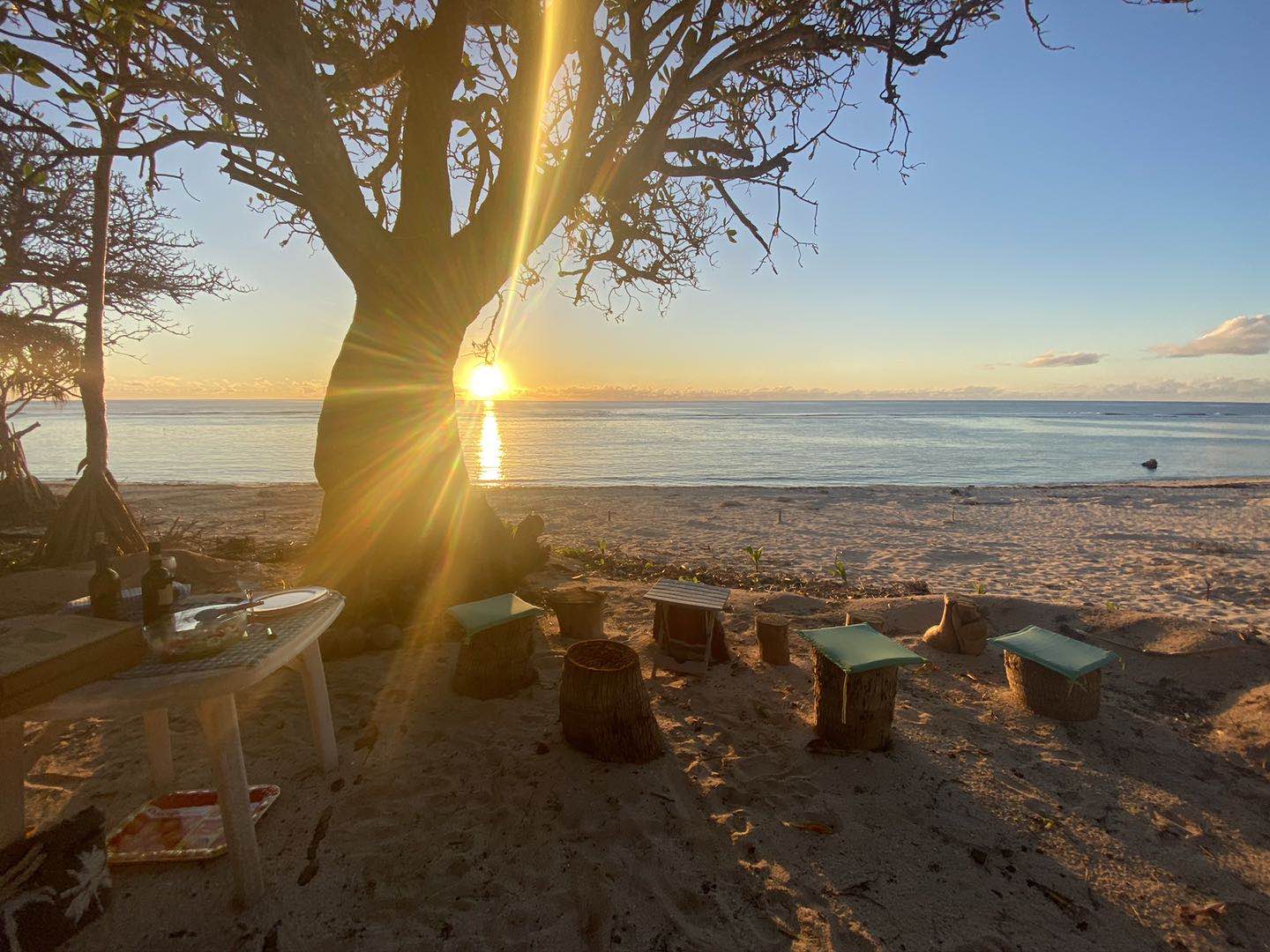
Making Money
Tonga is cheap compared to the rest of the Pacific, but the Pacific isn’t a cheap place to travel or live.
I try to live as frugally as possible – and there are also not so many leisure activities I can spend my money on anyway, so that temptation is gone.
Restaurants and cafes are few and far between, so I cook at home a lot – cooking for the dogs too. For the dogs, the people helping me look after the house give me money.
I have been working remotely on reduced hours for months, but now I’m on one day a week from my previous job – and unsure how long that will last. I’m still paying rent in Beijing, which now amounts to 50% of my total rent that I still pay in China. This takes a big chunk out of my monthly allowance and means that I have to dip into my savings, which I’m lucky to have a small amount of from working over the years.
I’m also helping out at the public library here and earning money through a couple of freelance jobs online.
But there is one more difficulty… Getting money here is tricky, especially since I still have yet to receive my new credit card from the UK replacing the old one lost in the cyclone. I can’t register at the Western Union here since I don’t have 2 items of ID (lost in the cyclone) which is a requirement.
Up until now, I have used other foreigners here to help me take out money after I transfer it electronically.
What do I do All Day?
My favourite question at the moment that I often get asked by the few other foreigners here – how do I fill my time?
I’m not sure how, but this has been my busiest year, and I find it difficult finding time to go swimming out in the ocean 2 minutes walk away sometimes.
I spent the first few weeks desperately trying to find another online job I could do, or indeed look at other options. In the end, I applied for a Master’s course and they accepted me. So now, I’m busy preparing for this which starts at the end of September. I spend 2 hours studying Chinese and Korean every day, and looking after a house and 4 dogs can take up a surprising amount of time. Especially when you have to cook for the dogs since Tonga has sold out of dog food.
When I do have free time, I spend most of it in the water, surfing, paddleboarding, swimming, and also trying to integrate as much into local culture, events, and activities. I’m also training for what may be Tonga’s first (unofficial) marathon, which I am running to raise money and awareness for Tonga’s only animal charity TAWS.
I keep busy, really.
Despite the lack of ‘things’ to do here, I don’t know where the time goes sometimes!
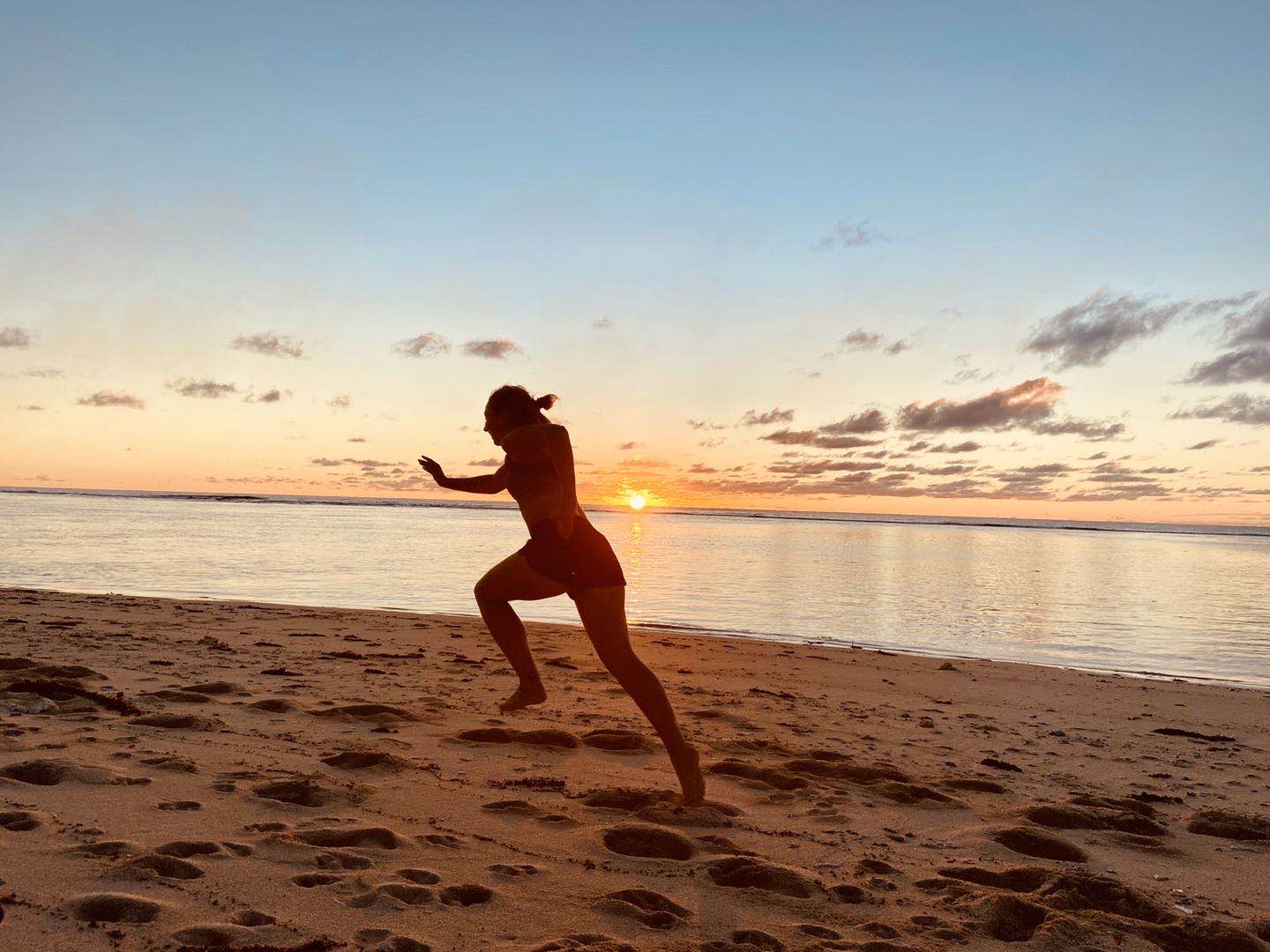
A Day in The Life…
It’s hard to put a typical schedule down because everything takes double the amount of time when you’re living on ‘island time’, things change all the time and some things never transpire, but an average day for me here would be;
06:00 Wake up
06:30-8:30 Self-study Korean & Chinese
08:30 – 9:00 Walk dogs
9:00 – 10:00 Go for a run
10:00 – 12:00 Time in the water; swimming, snorkelling, surfing, paddle-boarding
12:00-13:00 Lunch, feed dogs
13:00 – 16:00 Go to town for shopping and work
16:00 – 17:00 Gardening
18:00 – 19:00 Cook and eat dinner
19:00 – 21:00 Chill out, watch films, sleep
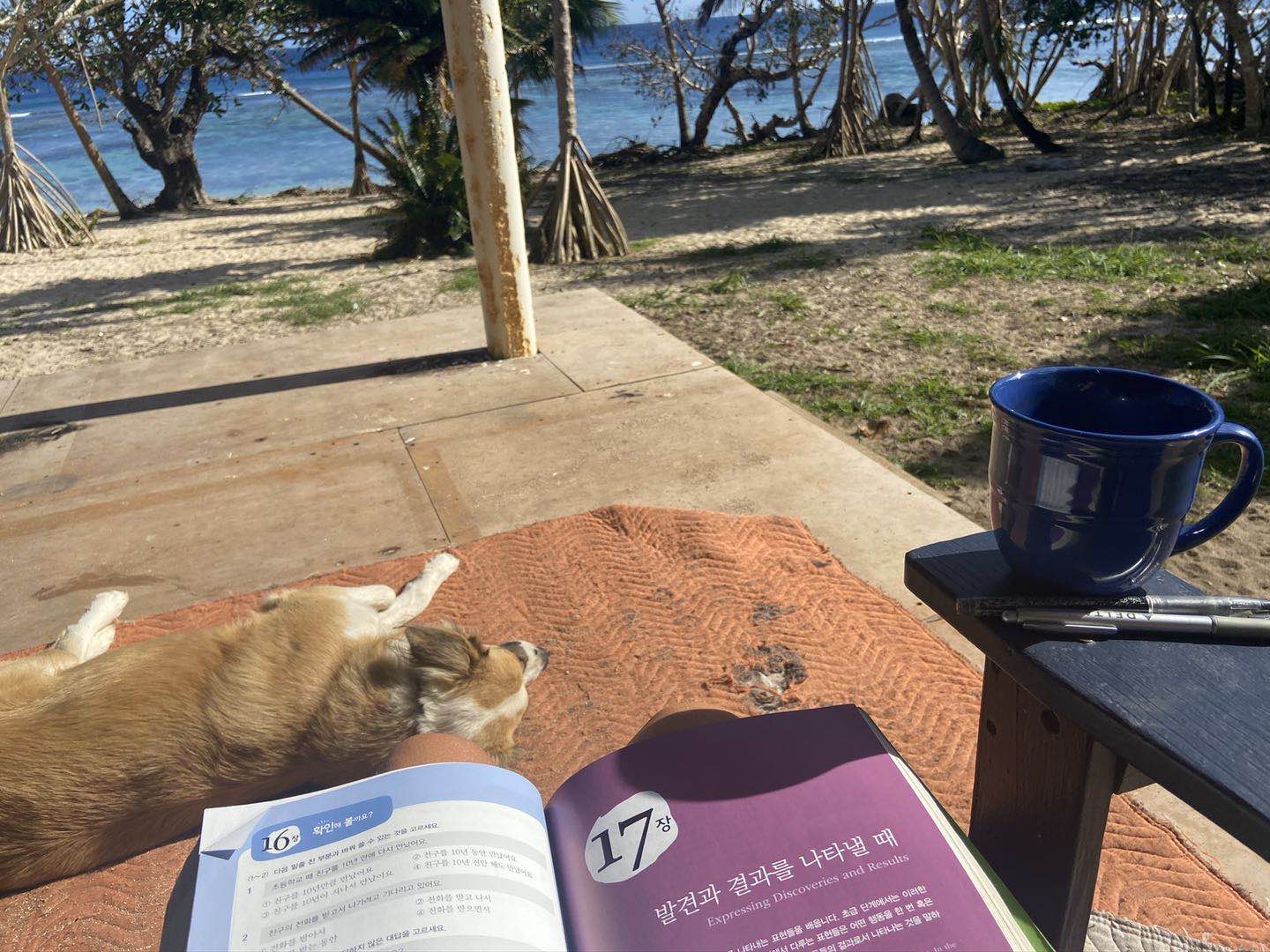
Stranded In Paradise: Would I Leave if I Could?
I had the chance to leave at the start of April on the repatriation flight to Germany. I decided not to take this for multiple reasons.
The main one is I didn’t imagine myself still here 6 months later. No one could have predicted how long this pandemic would go on for. I had hoped that it would be a couple of months tops.
The flight was to Germany, not the UK. And at the height of the first wave in Europe, I was unsure how travel from Germany to the UK would be.
There was also not much reason for me to go back to the UK. I don’t live there, and my life is in China. I’d have trouble finding a place to quarantine and once I’m there, what would I do?
My flight back to China goes through Fiji – it’s non-refundable and can only be used as credit for another flight.
And finally, I’d left 90% of my luggage in Fiji, which I’d quite like to get back at some point. And I presumed travel to Fiji would be possible pretty soon.
My Options Now
In hindsight, if I knew then what I knew now, would I have left?
I don’t know.
Now, there is a weekly flight to New Zealand. It is possible to go back to the UK using this flight. However, due to transfer restrictions and different country entry requirements, I would potentially have to get several different permissions for stay extensions from various embassies around the world, depending on where I’d transfer. Plus spending thousands of dollars at a time when money is tight.
So I could leave. Potentially. But at the moment, it’s not an option I’m considering. Instead, I am waiting in hope that China will open to foreigners again soon.
And aside from all this, I also have to face the reality that I am incredibly lucky. I’m living in one of the few countries without coronavirus. Often, it feels like I am living a parallel life. There are times of great difficulty and loneliness, but amongst these, I try to stay positive. I do live in paradise. The sound of the sea and the sight of the palm trees and sunshine greet me every morning. I have a house which I now call a home, and the dogs to keep me company. Seafood I can cook freshly plucked from the sea in a big kitchen and work in the garden where I grow my own aloe vera and make aloe vera juice.
I never imagined myself being in this position in my life – ever – and I may never get this opportunity or life again.


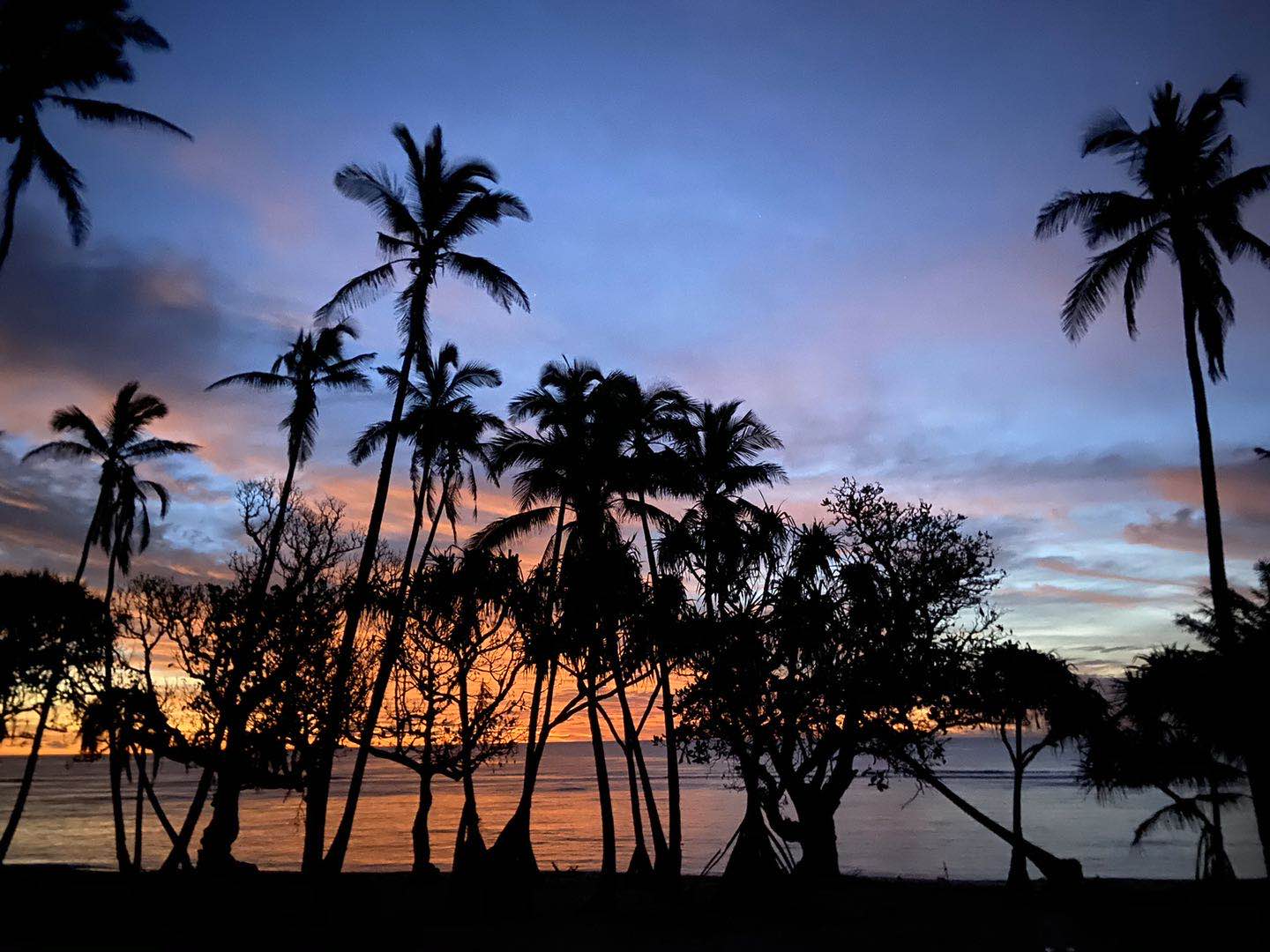

Follow up: Zoe Stephens is running a marathon in Tonga on October 17, 2020 to support the newly formed Tonga Animal Welfare Society. This is first animal welfare organization in Tonga, which has no veterinarians and few pet supplies and medications in the country. TAWS is teaching children about how to care for animals and also educating their fellow citizens to treat dogs and cats as family members rather than as food. If you have time, please check out her event.
GoFundMe: https://bit.ly/3lQZuD1
Facebook: https://www.facebook.com/tongamarathon
He’ikai fe’unga ke ‘ilo ha lea ‘e taha.
Really appreciate Zoe’s posts! What a crazy situation to be stuck in.
+1
What a story to tell the grandkids
Very cool story – thanks for sharing